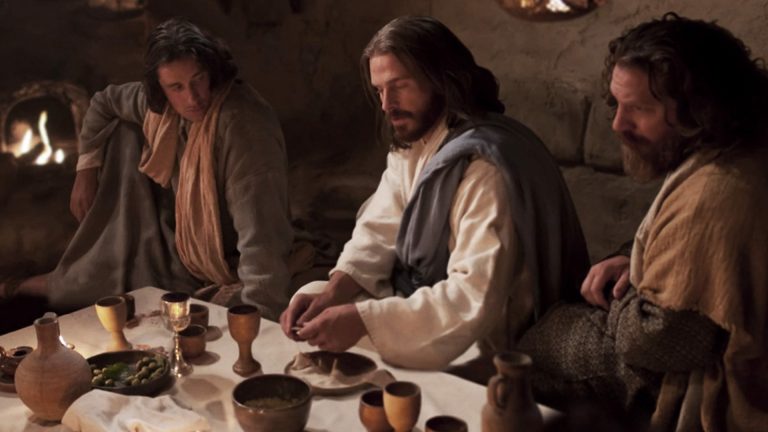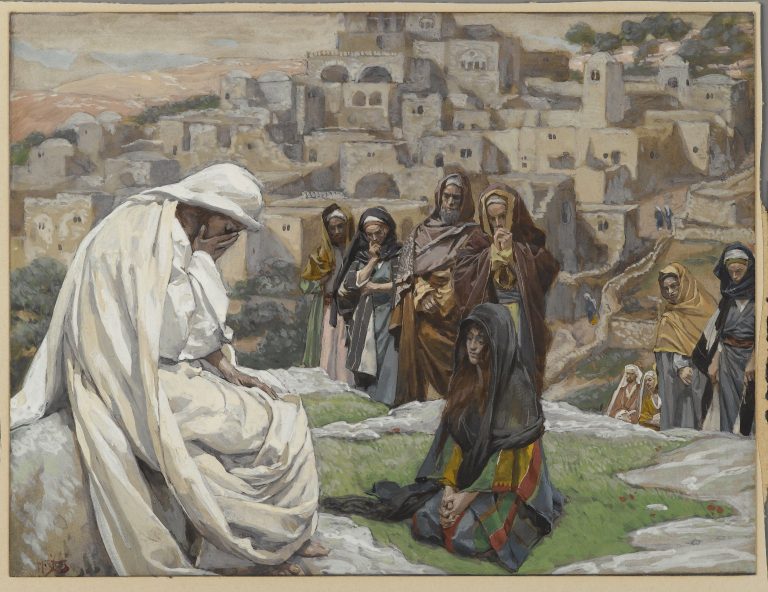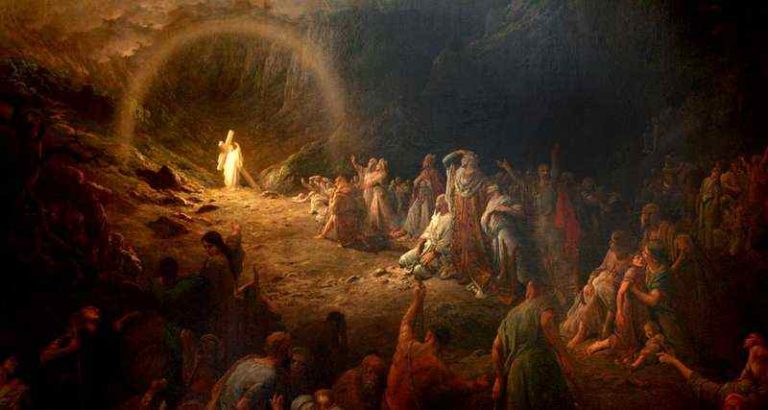What Tribe Did Jesus Come From
In the study of Jesus’ life and lineage, a question has intrigued religious historians for centuries: what tribe did Jesus come from? It’s a matter of great significance, as the answer can shed light on the historical context of His life and the fulfillment of biblical prophecies.
As we delve into this fascinating topic, we’ll examine various sources and perspectives to uncover Jesus’ tribal origins. We can’t discuss Jesus’ lineage without first understanding the importance of tribes within ancient Israelite society. A person’s tribe determined their social standing, inheritance rights, and even who they could marry.
By examining biblical genealogies and other historical documents, scholars have pieced together information about Jesus’ ancestry to identify His tribal affiliation. This article will explore the evidence pointing to Jesus’ tribal roots and how it ties into crucial aspects of His ministry and teachings.

The Twelve Tribes Of Israel
The Twelve Tribes of Israel hold a significant place in the history and religious tradition of the Jewish people. These tribes trace their origins to the twelve sons of Jacob, who was later known as Israel.
According to biblical accounts, each son became the patriarch of a tribe that bore his name. Reuben, Simeon, Levi, Judah, Issachar, Zebulun, Dan, Naphtali, Gad, Asher, Joseph (who later became the tribes of Ephraim and Manasseh),, and Benjamin were all part of these tribes.
The formation of these tribes played a crucial role in shaping the identity and culture of ancient Israelites.
Jesus Christ is often called the ‘Lion of Judah,’ which signifies His lineage from the Tribe of Judah. This ancestry is important in both Jewish and Christian theology because it fulfills several Old Testament prophecies about the coming Messiah.
For instance, Genesis 49:10 states, ‘ The scepter shall not depart from Judah.’ Many scholars interpret this prophecy as indicating that the long-awaited Messiah would come from this tribe.
Furthermore, Jesus’ genealogy recorded in Matthew 1 and Luke 3 traces His lineage back through King David and ultimately to Judah. Thus, Jesus’ connection to the Tribe of Judah holds great significance for believers as it affirms His messianic credentials according to biblical prophecy.
Jesus’ Lineage According To The Gospels
As we delve further into the lineage of Jesus, it is essential to understand His connection to the Twelve Tribes of Israel. These tribes were descendants of Jacob, who was renamed Israel after a divine encounter. Each tribe was named after one of his twelve sons, and they formed the foundation of the ancient nation of Israel.
Knowing Jesus’ tribal affiliation allows us to appreciate His role in fulfilling numerous prophecies and covenants in the Hebrew Scriptures. According to the Gospels, specifically Matthew 1:1-16 and Luke 3:23-38, Jesus descended from the tribe of Judah.
This particular tribe held great significance because it produced King David and several other prominent leaders throughout Israel’s history. The prophecies foretold that the Messiah would arise from this line (Genesis 49:10; Micah 5:2).
Therefore, by establishing Jesus as a direct descendant of Abraham and King David through Judah’s lineage, these genealogies underscore His rightful claim as the long-awaited Jewish Messiah and King.
The Significance Of The Tribe Of Judah
The Tribe of Judah is integral to the biblical narrative and the genealogy of Jesus Christ. As one delves into the significance of Jesus’ connection with this tribe, it is essential to acknowledge key aspects that set Judah apart within the broader context of Israel’s history:
- The Tribe of Judah was founded by Judah, one of the twelve sons of Jacob (also known as Israel). It was through Judah’s descendants that the royal line emerged, leading to King David and ultimately to Jesus.
- According to Genesis 49:10, Israel prophesied that ‘the scepter shall not depart from Judah,’ foreshadowing an enduring reign over Israel. This prophecy laid the foundation for Jesus’ role as the ‘Lion of the Tribe of Judah’ (Revelation 5:5).
- The Tribe of Judah played a crucial part in shaping Israel’s identity. They were central figures during their exodus from Egypt, their subsequent conquest of Canaan, and their establishment as a unified kingdom under King David.
- Even after the division between Northern and Southern Kingdoms, with ten tribes forming Israel in the north and only two tribes (Judah and Benjamin) constituting Judah in the south, it was through this southern lineage that Jesus’ ancestry can be traced.
The affirmation of Jesus’ connection to the Tribe of Judah carries profound implications for his messianic identity and his role as a fulfillment of ancient prophecies. This lineage reinforces his rightful claim to kingship – tracing back through Davidic ancestry – while symbolizing his ultimate authority over God’s chosen people.
Emphasizing this tribal affiliation bridges disparate moments and figures throughout sacred history, highlighting a divine plan unfolding across generations. Thus, understanding Jesus’ origins within this particular tribe enriches our appreciation for his historical roots and spiritual destiny.
Old Testament Prophecies About The Messiah
Jesus of Nazareth, the central figure in Christianity, is believed to have come from the tribe of Judah. This lineage can be traced through biblical genealogies in Matthew and Luke’s Gospels. According to these accounts, Jesus was a direct descendant of King David, who was also from the tribe of Judah.
The significance of this tribal affiliation is emphasized in numerous Old Testament prophecies that foretold the coming of a Messiah from the line of David and the tribe of Judah. Old Testament prophecies about the Messiah hold an essential place in understanding Jesus’ role and mission within Christianity.
For example, Genesis 49:10 states that ‘the scepter shall not depart from Judah,’ which has been interpreted as a prophecy indicating that a ruler would arise from this particular tribe. Moreover, Isaiah 11:1-5 describes a future leader emerging from the ‘stump of Jesse,’ referring to King David’s father and emphasizing Jesus’ connection to this prominent Israelite lineage.
These prophecies reveal how God’s plan for salvation was intricately woven into the fabric of Jewish history and identity, culminating in the birth and ministry of Jesus Christ as both Messiah and fulfillment of divine promises made long ago.
Cultural And Historical Context Of Jesus’ Tribal Identity
Jesus Christ, the central figure of Christianity, was a member of the tribe of Judah, one of the twelve tribes of Israel.
This tribal affiliation is significant in both the cultural and historical context of Jesus’ life and ministry and in understanding the fulfillment of biblical prophecies concerning the Messiah.
The Hebrew Bible or Old Testament contains numerous prophecies describing the coming Messiah as a descendant of Judah, which validates Jesus’ claim to be this long-awaited savior.
The tribe of Judah held substantial importance within ancient Israelite society due to its royal lineage and territorial dominance.
King David, an ancestor of Jesus, was also from this tribe. As such, Jesus’ association with Judah fulfilled prophetic expectations and connected him with a prestigious heritage that would have resonated profoundly with his contemporaries.
By acknowledging their shared ancestry with notable figures like King David, early Christians could emphasize Jesus’ divine status while grounding his identity within a familiar cultural framework that would have been meaningful to Jews and Gentiles alike.
Conclusion
In conclusion, Jesus belonged to the Tribe of Judah. His lineage, as presented in the Gospels and Old Testament prophecies about the Messiah, strongly supports this tribal identity.
We must consider the cultural and historical context of Jesus’ time to fully understand the significance of his connection to the Tribe of Judah.
Recognizing this connection allows us to appreciate the fulfillment of ancient prophecies and further deepens our understanding of Jesus’ life and mission.

Sangtea Hmar is a passionate leader of the Youth Christian Fellowship at the Electric Vengthlang Presbyterian Church in Aizawl, Mizoram, India. He is the owner of Christiantone.com and is committed to spreading the word of God. He loves to mentor youth and help them grow in their faith.






